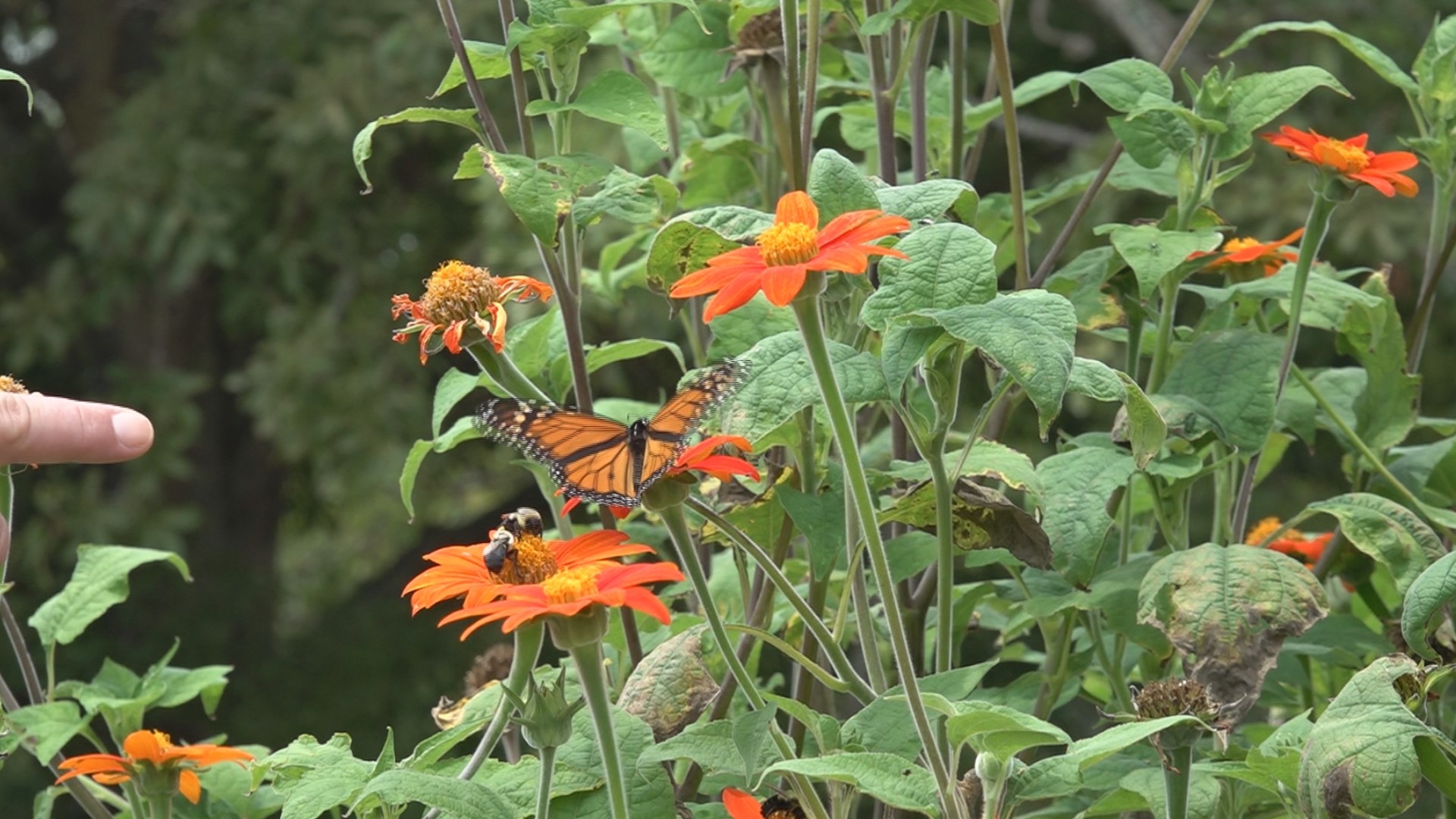COLUMBIA, S.C. — Monarch butterflies are now considered an endangered species. If you're looking to help, Richland County Urban Horticulture Agent Jackie Jordan says anyone can help.
"If a homeowner wants to do something about it, they don’t have to put in a huge garden," Jordan said. "It’s a matter of just a few plants."
First on the list is milkweed. This serves as a host for larvae. In other words, monarchs can lay eggs on this plant. The baby caterpillars can then eat the plant.
Milkweed belongs to the Asclepias genus. There are multiple different species, some of which produce blooms.
"Monarch butterflies and several other species of butterflies - but mostly monarchs - only use milkweed and Asclepias as their larval host plant," gardener Clay Parker said. "So when they're going to reproduce and lay eggs, they have to find milkweed. They can’t go to a magnolia tree or an oak tree or a hibiscus tree…they have to find milkweed."
Parker said he started growing milkweed about six years ago. Now, he grows more than he needs and gives it out to community members in hopes the butterfly population will benefit.
"We thought, 'Hey, everybody should do this! It's great. Monarchs are in peril, so what can we do?" Parker said.
He said helping meant getting milkweed into any hands - and home gardens - he could.
"Now that monarch butterflies are officially endangered and disappearing, anyone can help," he said.
Milkweed is not the only thing they need. They also need open-facing flowers like marigolds and zinnias, Jordan says.
These flowers should bloom through multiple seasons, according to Jordan.
"We need a successional bloom. So early spring, mid-spring, late spring. Early summer, mid-summer, late summer. Early fall, mid-fall, so there's always a source of food for them," she said.
A key thing to keep in mind is how you maintain these flowers. Jordan says spraying them with certain pesticides can actually do more harm than good.
Her advice is to find a targeted pesticide that only impacts the specie you're trying to eliminate.
"Clemson has the Home and Garden Information Center. You can call up, you can always talk to an agent, we can help you identify the problem and make sure that we give you controls that have the narrowest scope and the least amount of impact so you're not harming those beneficials," Jordan said.
So why do we need monarch butterflies?
Jordan says it's because they're important pollinators.
"Pollinators are key to us surviving, for us to have food and flowers because they're so important in that pollination process," she said. "The scariest thing to imagine is what you could buy in a grocery store if there were no pollinators. You'd be limited to, like, oranges and corn."
Arlene Marturano is the Director of the South Carolina Garden-Based Learning Network. She brought some milkweed seeds to WLTX and planted them in Gandy's Garden.
Marturano brought three different types of seeds, although she said there are many to choose from.
"There are 20 in South Carolina, however, these are the most popular and easy to get in the marketplace," she said about the seeds she brought.
If you're interested in following along with our milkweed growth and learning more about planting, you can join the WLTX Gandy's Gardeners Facebook group.
RELATED: July in Gandy's Garden at WLTX

